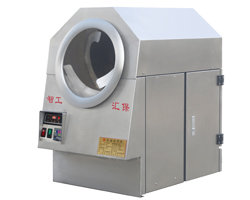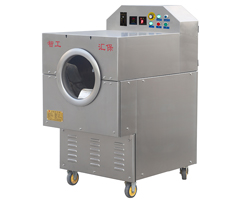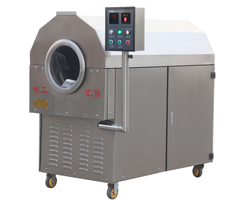Lunar January fifteen to eat the lantern, " lantern " as food, is long-standing in our country. Song Dynasty, folk or a popular novel foods eaten during the Lantern festival. This kind of food, the first called "floating element " later called the "Lantern Festival ", also called "gold business ". Lantern Festival that is, " Tang Yuan" to sugar, roses, sesame, bean paste, Huang, walnut kernels, nuts, etc. Zaoni filling, with glutinous rice flour into a circular package, can-meat flavor. Soup can be boiled, fried, steamed, meaning there is a happy reunion. Shaanxi glutinous rice balls is not a package, but in the glutinous rice flour in the "roll", or boiled or fried, hot hot hot, round and round. At the same time, but also eat festive food, pour on the meat in the northern and Southern Dynasties and poo soup rice porridge or beans congee. But the food is mainly used for sacrifice, is also not food festival. In the Tang Dynasty Zheng Wangzhi's " Shan Fu Lu" was recorded: " Bian of dieting, Shangyuan oil hammer ". Method for preparing oil hammer, according to " Taipingguangji " lead " Lushi Za " in a " still feed to make" records, similar offspring fried lantern. There are people in the name of " oil painting pearl ". Glutinous rice balls for Lantern FestivalThe Tang Dynasty is the lantern on a diet of silkworm. Wang Renyu ( eight eight, nine five six ) of the " Kaiyuan Tianbao Chronicles " records: " every year spring, all artificial surface silkworm practices are still in the Song Dynasty to the left, but different seasonal food is more abundant in Tang dynasty ". Lv Yuanming's " notes " when mentioned: " Beijing people with mung bean powder soup boiled glutinous bracket, a pill, sugar Huo, called dumpling salt soy sauce. Twist head meat soup, called salt bean soup, and as the day the silkworm, Shangyuan dieting is all ". To the Southern Song Dynasty, there is the so-called " lactose dumpling ", this is the predecessor of the glutinous rice balls. At least until the Ming Dynasty, people in the ' Lantern Festival ' to call this kind of glutinous rice dumplings. Liu Ruoyu ( born one five four one) of the " action " in the annals record the lantern approach: " the preparation method, with glutinous rice flour, with walnut, sugar, rose for the filling, water roll into, such as walnut, Jiangnan called dumpling also ". The Kangxi period of the Qing Dynasty, the imperial kitchen specially made " Babao lantern ", is a famous enterprise delicious. Ma Siyuan was the master of the city of Beijing. He drops the famous lantern making powder. At once (born one six eight eight ) the " Lantern Zhuzhici " cloud: " sweet-scented osmanthus fragrance filling in walnut, such as the Pearl River water Amoy glutinous rice. See said, very good, try to sell the lamp in the wind ". The poems of the Lantern Festival, is a great reputation ma. Nearly a thousand years, is making lantern exquisite. Light skinned, with glutinous rice flour, sticky sorghum, millet and rice noodles. The filling content is more sweet and salty meat, have everything that one expects to find. Sweet is the so-called sweet-scented osmanthus sugar, white sugar, hawthorn, red bean paste, sesame, peanut mixed etc.. Salty meat lard, can be fried fried lantern. In the mustard, garlic, leek, ginger, composed of five lantern, hard-working, have said long, upward. The method is also different from north to south. Methods the North lantern multi-purpose basket rolled hand, south of the dumplings is with the palm of the hand rub group. The lantern can like walnut, there are small like bean, method of cooking with soup, fried, steamed, fried. Regardless of whether or not the fillings, equally delicious. At present, the Lantern Festival has become a kind of four are prepared snack, at any time can be a bowl of jiejie chan. 正月十五吃元宵,“元宵”作為食品,在我國也由來已久。宋代,民間即流行一種元宵節(jié)吃 的新奇食品。這種食品,最早叫“ 浮元子”后稱“元宵” ,生意人還美其名曰“元寶” 。元宵即"湯圓"以白糖、玫瑰、芝麻、豆沙、黃桂、核桃仁、果仁、棗泥等為餡,用糯米粉包成圓形,可葷可素,風(fēng)味各異。可湯煮、油炸、蒸食,有團(tuán)圓美滿之意。陜西的湯圓不是包的,而是在糯米粉中"滾"成的,或煮司或油炸,熱熱火火,團(tuán)團(tuán)圓圓。同時,還要吃些應(yīng)節(jié)食物,在南北朝時澆上肉加便便湯汁的米粥或豆粥。但這項食品主要用來祭祀,還談不上是節(jié)日食品。到了唐朝鄭望之的《膳夫錄》才記載了:“汴中節(jié)食,上元油錘”。油錘的制法,據(jù)《太平廣記》引《盧氏雜說》中一則“尚食令”的記載,類似后代的炸元宵。也有人美其名為“油畫明珠”。 元宵 唐朝的元宵節(jié)食是面蠶。王仁裕(八八○—九五六)的《開元天寶遺事》記載:“每歲上元,都人造面蠶的習(xí)俗到宋代仍有遺留,但不同的應(yīng)節(jié)食品則較唐朝更為豐”。呂原明的《歲時雜記》就提到:“京人以綠豆粉為科斗羹,煮糯為丸,糖為臛,謂之圓子鹽豉。捻頭雜肉煮湯,謂之鹽豉湯,又如人日造蠶,皆上元節(jié)食也”。到南宋時,就有所謂“乳糖圓子”的出現(xiàn),這應(yīng)該就是湯圓的前身了。 至少到了明朝,人們就以‘元宵’來稱呼這種糯米團(tuán)子。劉若愚(生于一五四一)的《酌中志》記載了元宵的作法:“其制法,用糯米細(xì)面,內(nèi)用核桃仁、白糖、玫瑰為餡,灑水滾成,如核桃大,即江南所稱湯圓也”。 清朝康熙年間,御膳房特制的“八寶元宵”,是名聞朝野的美味。馬思遠(yuǎn)則是當(dāng)時北京城內(nèi)制元宵的高手。他制作的滴粉元宵遠(yuǎn)近馳名。符曾(生于一六八八)的《上元竹枝詞》云:“桂花香餡襄胡桃,江米如珠井水淘。見說馬家滴粉好,試燈風(fēng)里賣元宵”。詩中所詠的,就是鼎鼎大名的馬家元宵。 近千年來,元宵的制作日見精致。光就面皮而言,就有江米面、粘高梁面、黃米面和苞榖面。餡料的內(nèi)容更是甜咸葷素、應(yīng)有盡有。甜的有所謂桂花白糖、山楂白糖、什錦、豆沙、芝麻、花生等。咸的有豬油肉餡,可以作油炸炒元宵。素的有芥、蒜、韭、姜組成的五辛元宵,有表示勤勞、長久、向上的意思。 制作的方法也南北各異。北方的元宵多用籮滾手搖的方法,南方的湯圓則多用手心揉團(tuán)。元宵可以大似核桃、也有小似黃豆,煮食的方法有帶湯、炒吃、油氽、蒸食等。不論有無餡料,都同樣的美味可口。目前,元宵已成了一種四時皆備的點心小吃,隨時都可以來一碗解解饞。




 豫公網(wǎng)安備41102502000005號
豫公網(wǎng)安備41102502000005號
